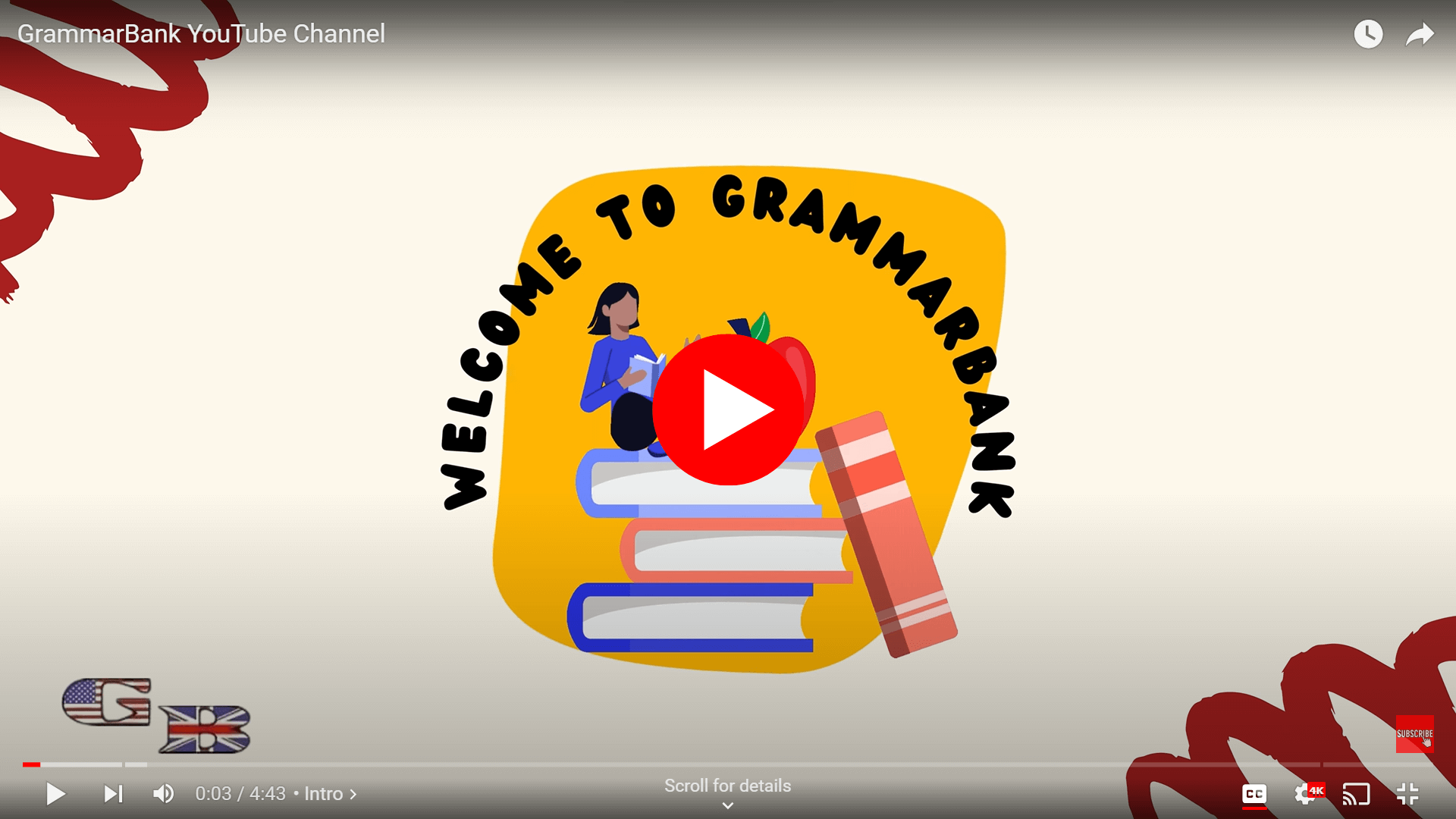Modal Verbs
Modals / Modal Verbs express degree of necessity, advisability and certainty. See modals chart below.
Subject Explanations:
Modal Verbs Chart
Could/Should/Would/Must Have
Subject Exercises:
1. Mustn't vs Don't Have to
2. Can vs Be Able To With Tenses
3. Must vs Have to / Has to
4. Can vs Could Exercise
5. Modals With Passive Voice
6. Modal Verbs With Passives 2
7. Modal Auxiliaries Exercise
PDF Worksheets: 1 / 2 / 3
Classic Style Exercises:Subject Explanations:
Modal Verbs Chart
Could/Should/Would/Must Have
Subject Exercises:
1. Mustn't vs Don't Have to
2. Can vs Be Able To With Tenses
3. Must vs Have to / Has to
4. Can vs Could Exercise
5. Modals With Passive Voice
6. Modal Verbs With Passives 2
7. Modal Auxiliaries Exercise
PDF Worksheets: 1 / 2 / 3
Modals Exercises
Multiple Choice Exercises:
Modal Verbs Tests
Drag and Drop Exercises:
Modal Verbs Drag and Drop Exercises 1
Modal Verbs Drag and Drop Exercises 2
Modal Verbs Drag and Drop Exercises 3
Also See:
Auxiliary Verbs
Must/Mustn't vs Have/Has to
Could have / Should have / Would have / Might have / Must Have + V3
Needn't have V3 vs Didn't need to
Can - Can't
Can - Can't Exercises
Can - Can't Exercises 2
Could vs Was/Were able to
Teaching Modals PDF Materials:
- Modals Chart With Examples
- Another List
- Modals and Meanings Practice
- Modals Classroom Activity
- Modals Logical Conclusion
- Modals of Politeness / Answers
- Modal Verbs Classroom 2
- Negatives of Modals
- Have To and Must
Modal Verbs Table
| Modal | USES | Present / Future | PAST |
| be supposed to | expectation | We are supposed to meet them here. | We were supposed to meet here. |
| be to | strong expectation | We are to meet them here. | We were to meet them here. |
| can / could Can - Can't Could |
ability / possibility informal permission informal polite request impossibility (negative only) | I can learn modal verbs online. You can use my car tomorrow. Can I borrow your book? Cats can't swim. |
I could jump high a few years ago but now I can't. That can't have been true! |
| have to | necessity lack of necessity (negative) |
I have to go to class today. I don't have to go to class today. |
I had to go to class yesterday. I didn't have to go to class yesterday. |
| have got to | necessity | I have got to go to class today | I had to go to class yesterday. |
| had better | strongly advised | You had better be on time. | (past form uncommon) |
| may | polite request formal permission less than 50% certainty |
May I borrow your book? You may leave the room. He may be at the school. |
He may have been at school. |
| Might | less than 50% certainty | He might be at school. | He might have been at school. |
| must | strong necessity prohibition 95% certainty |
I must go to class today. You must not open that door. Mary isn't in class. She must be sick.(present only) |
I had to go to class yesterday. Mary must have been sick yesterday. |
| ought to | advisability 80% certainty |
I ought to study tonight. She ought to be at school | I ought to have studied last night. She ought to have done well on the test. |
| shall | ask another person's opinion (only used with I or we) | Shall I invite them too? Shall we dance? |
|
| should | advisability 80% certainty |
I should study tonight He should be at school |
You should have paid your bills. He should have done well on the test. |
Another Reference for Modals
| Legal Obligation / Official | MUST | Police officer: 'You must wear a seatbelt.' |
| Logical Conclusion | MUST | The teacher's absent. She must be sick. |
| Reporting a Rule | BE SUPPOSED TO | We are supposed to turn our cell phones off in movie theaters. |
| Personal Necessity / Obligation | HAVE TO / HAVE GOT TO | I have to call the doctor today. |
| Possibility | CAN | I can meet with you on Friday. |
| Ability | CAN / BE ABLE TO | I can play the piano. I am able to speak English. |
| Permission | CAN / BE ALLOWED TO | I can have a dog in my apartment. I am allowed to have pets in my room. |
| Past Ability | COULD / WAS ABLE TO | When I was a kid, I could run for hours. could vs was were able to |
| Past Permission | WAS ALLOWED / PERMITTED TO | I wasn't allowed to go out at nights. |
| Advice | SHOULD | You should call your mother on her birthday. |
| Warning | HAD BETTER | You'd better study before the test. |
| A Choice / Not required | DON'T HAVE TO | I don't have to wear a suit to work. |
| Possibility / Uncertainty about the future *adverb MAYBE | MAY / MIGHT | It might / may rain this evening. May be it will rain this evening. |
| Polite request | WOULD / COULD | Would you open the door, please? |
| Permission | MAY / CAN / COULD | May I borrow your pen? |
| To express what you want | WOULD LIKE | I would like to learn English free. |
| Preference | WOULD RATHER | I would rather walk than drive. |





Comments